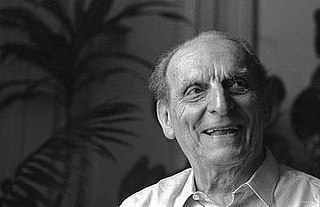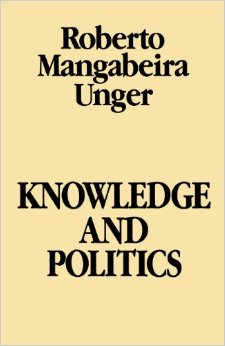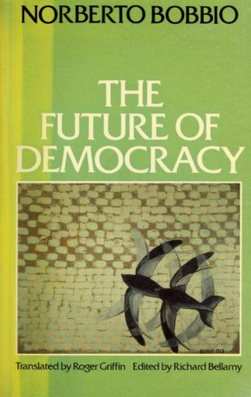Classical liberalism is a political tradition and a branch of liberalism that advocates free market and laissez-faire economics and civil liberties under the rule of law, with special emphasis on individual autonomy, limited government, economic freedom, political freedom and freedom of speech. Classical liberalism, contrary to liberal branches like social liberalism, looks more negatively on social policies, taxation and the state involvement in the lives of individuals, and it advocates deregulation.
Politics is the set of activities that are associated with making decisions in groups, or other forms of power relations among individuals, such as the distribution of status or resources. The branch of social science that studies politics and government is referred to as political science.
Political philosophy, or political theory, is the philosophical study of government, addressing questions about the nature, scope, and legitimacy of public agents and institutions and the relationships between them. Its topics include politics, justice, liberty, property, rights, law, and authority: what they are, if they are needed, what makes a government legitimate, what rights and freedoms it should protect, what form it should take, what the law is, and what duties citizens owe to a legitimate government, if any, and when it may be legitimately overthrown, if ever.
Right-wing politics is the range of political ideologies that view certain social orders and hierarchies as inevitable, natural, normal, or desirable, typically supporting this position based on natural law, economics, authority, property, religion, biology, or tradition. Hierarchy and inequality may be seen as natural results of traditional social differences or competition in market economies.
The left–right political spectrum is a system of classifying political positions, ideologies and parties, with emphasis placed upon issues of social equality and social hierarchy. In addition to positions on the left and on the right, there are centrist and moderate positions, which are not strongly aligned with either end of the spectrum. It originated during the French Revolution based on the seating in the French National Assembly.

Proponents of democratic peace theory argue that both electoral and republican forms of democracy are hesitant to engage in armed conflict with other identified democracies. Different advocates of this theory suggest that several factors are responsible for motivating peace between democratic states. Individual theorists maintain "monadic" forms of this theory ; "dyadic" forms of this theory ; and "systemic" forms of this theory.

Norberto Bobbio was an Italian philosopher of law and political sciences and a historian of political thought. He also wrote regularly for the Turin-based daily La Stampa. Bobbio was a social liberal in the tradition of Piero Gobetti, Carlo Rosselli, Guido Calogero, and Aldo Capitini. He was also strongly influenced by Hans Kelsen and Vilfredo Pareto. He was considered one of the greatest Italian intellectuals of the 20th century.

Piero Gobetti was an Italian journalist, intellectual, and anti-fascist. A radical and revolutionary liberal, he was an exceptionally active campaigner and critic in the crisis years in Italy after the First World War and into the early years of Fascist Italy.
Idealism in the foreign policy context holds that a nation-state should make its internal political philosophy the goal of its conduct and rhetoric in international affairs. For example, an idealist might believe that ending poverty at home should be coupled with tackling poverty abroad. Both within and outside of the United States, American president Woodrow Wilson is widely considered an early advocate of idealism and codifier of its practical meaning; specific actions cited include the issuing of the famous "Fourteen Points".
In international relations theory, the concept of anarchy is the idea that the world lacks any supreme authority or sovereignty. In an anarchic state, there is no hierarchically superior, coercive power that can resolve disputes, enforce law, or order the system of international politics. In international relations, anarchy is widely accepted as the starting point for international relations theory.
Liberalism is a political and moral philosophy based on the rights of the individual, liberty, consent of the governed, political equality, right to private property and equality before the law. Liberals espouse various and often mutually warring views depending on their understanding of these principles but generally support private property, market economies, individual rights, liberal democracy, secularism, rule of law, economic and political freedom, freedom of speech, freedom of the press, freedom of assembly, and freedom of religion. Liberalism is frequently cited as the dominant ideology of modern history.
Liberalism, the belief in freedom, equality, democracy and human rights, is historically associated with thinkers such as John Locke and Montesquieu, and with constitutionally limiting the power of the monarch, affirming parliamentary supremacy, passing the Bill of Rights and establishing the principle of "consent of the governed". The 1776 Declaration of Independence of the United States founded the nascent republic on liberal principles without the encumbrance of hereditary aristocracy—the declaration stated that "all men are created equal and endowed by their creator with certain unalienable rights, among these life, liberty, and the pursuit of happiness". A few years later, the French Revolution overthrew the hereditary aristocracy, with the slogan "liberty, equality, fraternity" and was the first state in history to grant universal male suffrage. The Declaration of the Rights of Man and of the Citizen, first codified in 1789 in France, is a foundational document of both liberalism and human rights, itself based on the U.S. Declaration of Independence written in 1776. The intellectual progress of the Enlightenment, which questioned old traditions about societies and governments, eventually coalesced into powerful revolutionary movements that toppled what the French called the Ancien Régime, the belief in absolute monarchy and established religion, especially in Europe, Latin America and North America.
Liberalism is a school of thought within international relations theory which revolves around three interrelated principles:
A Theory of Legal Order is a book of the Italian jurist Norberto Bobbio about one of the ontological elements of foundations of law — the juridical order.
Liberal socialism is a political philosophy that incorporates liberal principles to socialism. This synthesis sees liberalism as the political theory that takes the inner freedom of the human spirit as a given and adopts liberty as the goal, means and rule of shared human life. Socialism is seen as the method to realize this recognition of liberty through political and economic autonomy and emancipation from the grip of pressing material necessity. Liberal socialism opposes abolishing certain components of capitalism and supports something approximating a mixed economy that includes both social ownership and private property in capital goods.

Knowledge and Politics is a 1975 book by philosopher and politician Roberto Mangabeira Unger. In it, Unger criticizes classical liberal doctrine, which originated with European social theorists in the mid-17th century and continues to exercise a tight grip over contemporary thought, as an untenable system of ideas, resulting in contradictions in solving the problems that liberal doctrine itself identifies as fundamental to human experience. Liberal doctrine, according to Unger, is an ideological prison-house that condemns people living under its spell to lives of resignation and disintegration. In its place, Unger proposes an alternative to liberal doctrine that he calls the "theory of organic groups," elements of which he finds emergent in partial form in the welfare-corporate state and the socialist state. The theory of organic groups, Unger contends, offers a way to overcome the divisions in human experience that make liberalism fatally flawed. The theory of organic groups shows how to revise society so that all people can live in a way that is more hospitable to the flourishing of human nature as it is developing in history, particularly in allowing people to integrate their private and social natures, achieving a wholeness in life that has previously been limited to the experience of a small elite of geniuses and visionaries.

Liberalism: A Counter-History is a 2005 book by Italian philosopher Domenico Losurdo, first published in English in 2011. In the book, Losurdo examines the inner contradictions of the highly influential history of liberalism and its political tradition. Key liberal thinkers who are discussed include John Locke, Alexis de Tocqueville and Edmund Burke.
Edmund Fawcett is a British political journalist and author.

The Future of Democracy: A Defence of the Rules of the Game is a 1984 book by the Italian political scientist Norberto Bobbio. It was published in English in 1987 by the University of Minnesota Press.

Left and Right: The Significance of a Political Distinction is a 1994 book by the Italian political scientist Norberto Bobbio. It is about the left–right political spectrum, which it argues is consistently useful. Bobbio equated political left and right with the distinction between equality and inequality.






